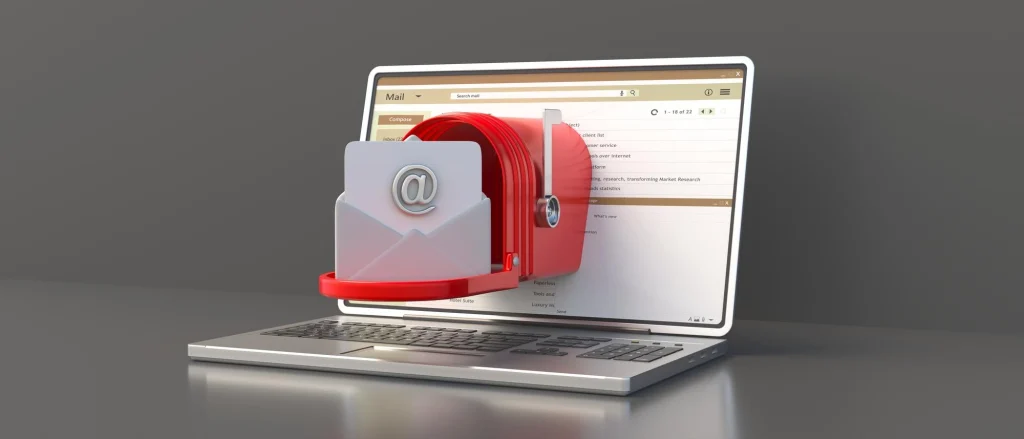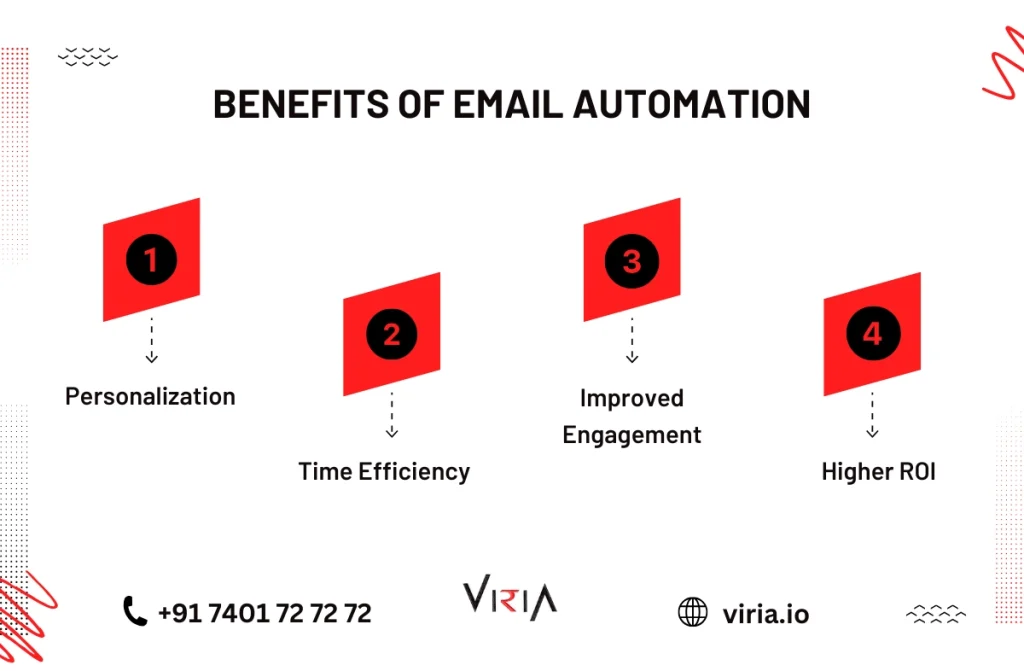In today’s digital landscape, where efficiency and customer engagement are paramount, businesses are increasingly turning to sophisticated tools to streamline operations. Email automation tools stand out as crucial assets for enhancing marketing strategies, automating repetitive tasks, and nurturing deeper customer relationships. This detailed guide will walk you through the importance, functionality, and integration of email automation tool with systems like email marketing automation software and automated marketing CRM, explaining why they are indispensable for modern business strategies.

What Are Email Automation Tools?
Email automation tools are dynamic software solutions designed to facilitate the automated sending of targeted, personalized emails. These tools allow companies to set up automated email campaigns that operate seamlessly, ensuring timely and relevant communication with their audience without manual oversight.

Integrating email automation tools with email marketing automation software and automated marketing CRM allows businesses to not only automate but also optimize and tailor their marketing efforts to better meet customer needs and preferences.
Email Automation Software
Email automation software is a powerful technology designed to automate repetitive email tasks, such as sending welcome emails, abandoned cart reminders, or follow-up messages. These tools enable businesses to stay connected with their customers and nurture leads effectively.
Key Features of Email Automation Software:
- Personalized Campaigns: Create tailored messages for each recipient based on their preferences and behavior.
- Automated Workflows: Set up complex workflows triggered by specific user actions, such as sign-ups or purchases.
- Analytics and Reporting: Track open rates, click-through rates, and conversions to measure the success of your campaigns.
- Integration Capabilities: Sync seamlessly with CRM systems and other marketing tools for a unified strategy.
Popular Email Automation Software Options:
- Mailchimp – Ideal for small to medium-sized businesses.
- HubSpot – Offers robust CRM integration for personalized outreach.
- ActiveCampaign – Known for advanced segmentation and automation features.
- ConvertKit – Perfect for content creators and bloggers.
Email automation tools not only save time but also ensure that your messages reach the right audience at the right time, improving engagement and ROI.
The Necessity of Email Automation Tools in Business
The digital marketing realm is ever-evolving, making the automation of repetitive tasks a key strategy for businesses aiming to maximize their operational efficiency and marketing impact. Here are several reasons why email automation tools are essential:

- Time-Saving Efficiency: Automating email communication frees up valuable time, allowing teams to focus on strategy and content creation rather than manual campaign management.
- Enhanced Personalization: Through integration with email marketing automation software, businesses can deliver targeted messages that cater specifically to the interests and behaviors of different audience segments.
- Consistent Engagement: Automated tools ensure that businesses maintain ongoing communication with their customers, keeping the brand prominent in their minds.
- CRM Integration: Email automation tools can synchronize with automated marketing CRM systems, providing a holistic view of customer interactions and enhancing the personalization of future communications.
- Higher Conversion Rates: Automated emails, especially those triggered by user actions like cart abandonment, have a higher likelihood of converting prospects into customers due to their relevance and timeliness.
Key Features to Look for in Email Automation Tools
Choosing the right email automation tools involves considering several key features that can significantly enhance your marketing efforts:
- Drag-and-Drop Email Builder: This feature allows for easy email creation, making it possible for anyone, regardless of technical skill, to design compelling emails.
- Advanced Segmentation: Effective tools provide capabilities to segment audiences intricately, ensuring that each group receives content tailored to their specific needs.
- Analytics and Reporting: High-quality email automation tools offer detailed analytics that help measure the success of campaigns, providing insights into open rates, click-through rates, and overall engagement.
- Pre-built Templates: To facilitate quick campaign rollouts, look for tools that offer a range of customizable templates that fit different branding and messaging requirements.
- Multi-channel Integration: The best tools also offer integration with other marketing channels, such as social media and SMS, creating a unified marketing strategy across various platforms.
Choose the Right Email Automation Tool for Your Business
When it comes to optimizing your email marketing efforts, selecting the best email automation tools is crucial for driving success. The right email marketing automation software can significantly enhance your outreach and customer engagement. Whether you’re a small business or a large enterprise, investing in top email automation tools will streamline your communication process, helping you stay connected with your audience effortlessly.
Consider the following factors when choosing the best email automation tools for your business:
- Ease of use: Ensure the platform has an intuitive interface that requires minimal learning.
- Customization options: Look for email marketing automation software that allows personalization of emails.
- Integration capabilities: Make sure the tool integrates seamlessly with your CRM or eCommerce platform.
- Analytics and reporting: The best tools provide detailed analytics to track your campaign performance.
- Customer support: Choose a platform with responsive support to address any issues.
Powerful Email Automation Tools
For businesses aiming to scale up their email campaigns, using powerful email marketing and automation tools is essential. These tools automate tasks like lead nurturing, customer segmentation, and follow-up emails, saving you time and improving efficiency.
- Mailchimp: Known for its user-friendly interface and powerful segmentation features.
- ActiveCampaign: Offers advanced automation workflows and CRM capabilities.
- HubSpot: Provides a complete suite of email marketing, automation, and customer relationship management tools.
- GetResponse: Best for creating automated marketing campaigns with a built-in webinar feature.
Using these email marketing automation software solutions can drastically improve your email deliverability and engagement.
Implementing Email Automation Tools

To successfully implement email automation tools in your marketing strategy, consider the following steps:
- Define Your Marketing Objectives: Understand what you wish to achieve with your email marketing efforts—whether it’s increasing lead generation, boosting sales, or enhancing customer retention.
- Choose the Right Tools: Select tools that align with your business needs and budget, and ensure they integrate well with your existing email marketing automation software and automated marketing CRM.
- Segment Your Audience: Create detailed audience segments to personalize your messaging effectively, which can significantly improve engagement rates.
- Set Up Automated Workflows: Design automated email workflows that react to specific customer actions, providing timely and relevant content that drives conversions.
- Monitor and Optimize: Regularly review the performance of your emails. Utilize the analytics provided by your tools to refine and optimize your email strategies continually.
Maximizing ROI with Email Automation Tools

Email automation tools not only streamline operations but also significantly enhance the return on investment (ROI) for marketing campaigns. By automating the distribution of personalized, timely content to various customer segments, businesses can achieve higher engagement rates, improved customer retention, and increased sales conversions.
Financial Benefits of Email Automation
The direct financial benefits of using email automation tools are substantial. These tools reduce the need for manual tasks, thus lowering labor costs and minimizing human error. Additionally, automated emails have a higher engagement rate compared to manually sent messages, as they are triggered by specific customer actions ensuring relevance and timeliness. This heightened engagement directly correlates with increased sales opportunities, as personalized emails can lead to higher transaction rates.
Strategies to Maximize ROI
To maximize the ROI of your email automation tools, consider the following strategies:
- Refine Segmentation: Continuously refine your segmentation strategies to ensure that the right messages reach the right audience segments. More targeted communication leads to better customer responses and higher conversion rates.
- A/B Testing: Regularly test different email elements, such as subject lines, content, and call-to-action buttons, to determine what resonates best with your audience. This iterative process helps optimize your emails for better performance.
- Lifecycle Email Marketing: Implement lifecycle email marketing by sending specific messages at different stages of the customer journey. From welcome emails to re-engagement campaigns, each step can be optimized to enhance customer engagement and loyalty.
- Leverage Advanced Analytics: Utilize the advanced analytics offered by email automation tools to gain insights into campaign performance. These insights can help you fine-tune your strategies, ensuring that every email sent contributes to a higher ROI.

Advanced Email Marketing Automation Strategies
Once you’ve selected the right email marketing and automation tool, it’s time to implement advanced strategies to elevate your email campaigns. The best email automation tools will help you leverage these strategies for maximum impact:
- Behavior-Based Automation: Automate emails based on user behavior, such as abandoned cart emails or welcome series.
- Personalization: Use dynamic content and customer data to send highly personalized emails.
- Segmentation: Segment your audience by interests, demographics, or purchase behavior to send targeted campaigns.
- A/B Testing: Continuously test subject lines, content, and timing to optimize your email performance.
- Triggered Emails: Set up triggers for sending automated emails based on user actions or milestones, such as a birthday email.
By using email marketing and automation strategies in conjunction with the best email automation tools, you can significantly improve your marketing ROI, drive customer engagement, and boost conversion rates.
Email Marketing Automation Tools
For businesses looking to enhance their marketing strategy, investing in email marketing automation tools is a no-brainer. These tools enable you to:
- Create automated workflows that nurture leads through the sales funnel.
- Schedule emails in advance to reach your audience at optimal times.
- Design visually appealing emails using drag-and-drop builders.
Benefits of Email Marketing Automation:
- Increased Efficiency: Automate repetitive tasks, freeing up time for strategic planning.
- Improved Targeting: Reach the right audience with tailored messages.
- Higher Engagement Rates: Personalized content leads to better customer interactions.
Many top email automation tools also integrate with automated marketing CRM platforms, offering a comprehensive solution for tracking customer journeys and ensuring consistent communication.
The Best Email Automation Tools for Your Business
The Best Free Email Marketing Apps
Email automation tools have revolutionized digital marketing, allowing businesses to reach their audiences efficiently, here are some top free email marketing apps that offer robust features:
1. Mailchimp
- Offers up to 500 contacts with 3,500 monthly sends for free.
- Provides built-in Email Marketing Automation Software for easy drip campaigns.
- Includes AI-powered insights to optimize email performance.
- Seamless integration with eCommerce and CRM platforms.
2. Brevo (formerly Sendinblue)
- Allows unlimited subscribers with a 300-email-per-day limit.
- Includes Automated Marketing CRM for tracking customer interactions.
- Offers advanced segmentation and automation workflows.
- A/B testing features to optimize subject lines and content.
3. MailerLite
- Comes with a drag-and-drop editor for easy campaign creation.
- Provides landing page builders and pop-ups to grow your email list.
- Integrates with popular platforms like Shopify and WordPress.
4. Moosend
- No subscriber limits in the free plan with 1,000 email sends per month.
- Features Email Marketing Automation Software with customizable workflows.
- Advanced analytics to track campaign performance.
- Real-time reporting for better decision-making.
5. Omnisend
- Designed for eCommerce businesses with automation features.
- Offers Automated Marketing CRM for personalized customer engagement.
- Supports SMS marketing alongside email campaigns.
- Free plan includes 250 contacts and 500 emails per month.
What Makes the Best Free Email Marketing Service?
When choosing the best email automation tools, it’s essential to consider several factors to maximize your marketing efforts.
1. Advanced Automation Features
- The ability to create drip campaigns, autoresponders, and behavior-triggered emails.
- Best Email Automation Tool should allow personalized content based on user actions.
2. User-Friendly Interface
- Drag-and-drop editors for easy email design.
- Pre-designed templates to streamline campaign creation.
3. CRM and eCommerce Integration
- Automated Marketing CRM integration ensures seamless communication with leads.
- Synchronization with Shopify, WooCommerce, and Salesforce for targeted marketing.
4. A/B Testing & Analytics
- Ability to test subject lines, content, and send times.
- Email Marketing Automation Software should provide detailed insights into open rates, click-through rates, and conversions.
5. Scalability and Deliverability
- Best Email Automation Tools should offer an easy upgrade path as your email list grows.
- Ensure high deliverability rates to prevent emails from landing in spam.
6. Compliance & Security
- Adherence to GDPR and CAN-SPAM regulations.
- Secure data encryption and authentication for user protection.
Benefits of Using Email Automation
- Saves Time & Effort – Automate repetitive tasks like follow-ups and newsletters.
- Enhances Personalization – Send targeted emails based on user behavior.
- Increases Engagement – Higher open and click-through rates with optimized automation.
- Boosts Sales & Conversions – Trigger-based emails help nurture leads into customers.
- Integrates with Other Marketing Channels – Sync with social media and CRM platforms for a multi-channel approach.
Conclusion
For businesses aiming to stay competitive and efficient in the digital era, email automation tools are not just beneficial; they are essential. They streamline marketing processes, enhance customer interaction, and significantly improve engagement and conversion rates. By harnessing the power of sophisticated email automation tools and integrating them with email marketing automation software and automated marketing CRM systems, businesses can unlock powerful synergies that drive growth and customer loyalty. Begin exploring the possibilities of email automation today to transform your marketing strategy and achieve new heights in business success.




